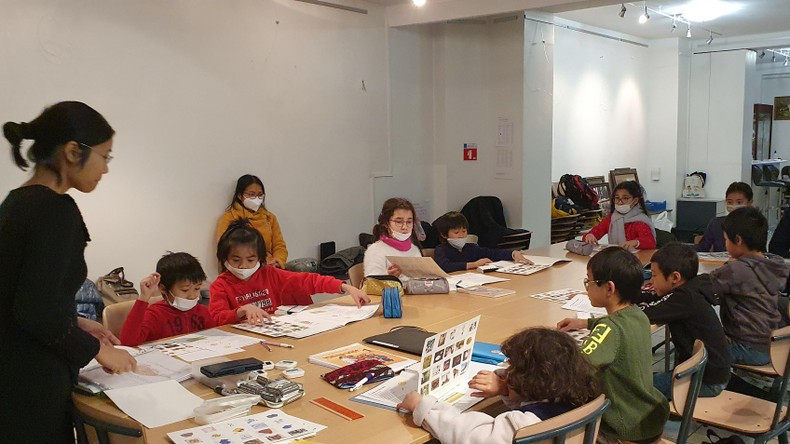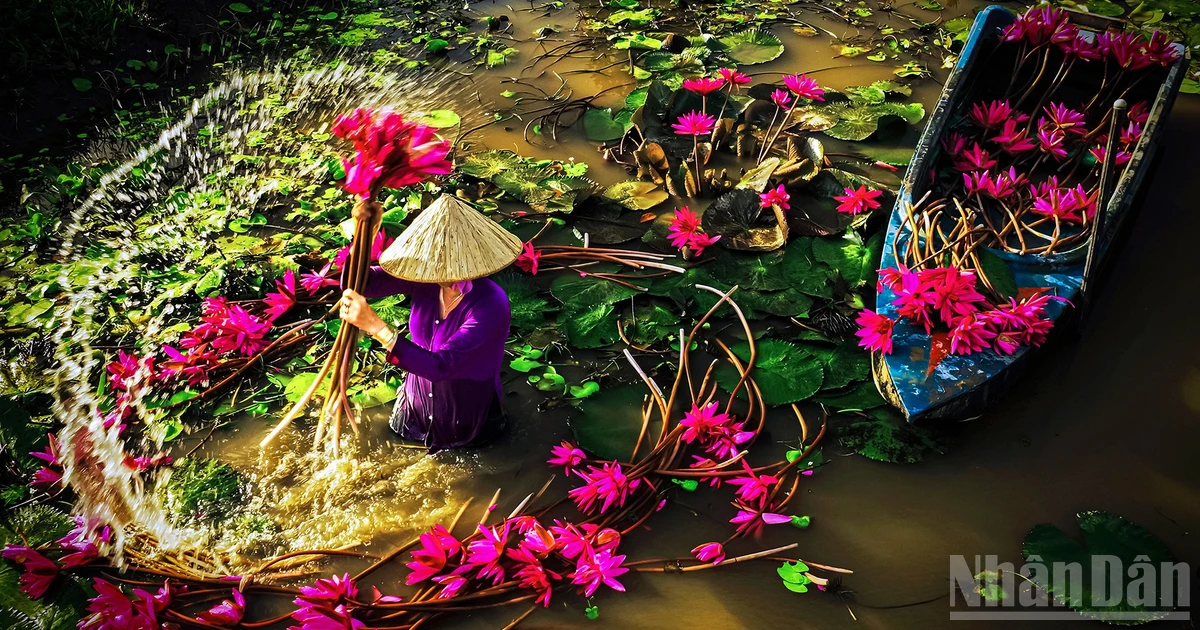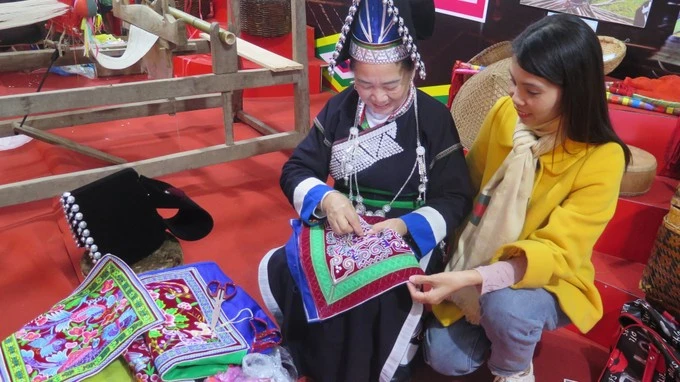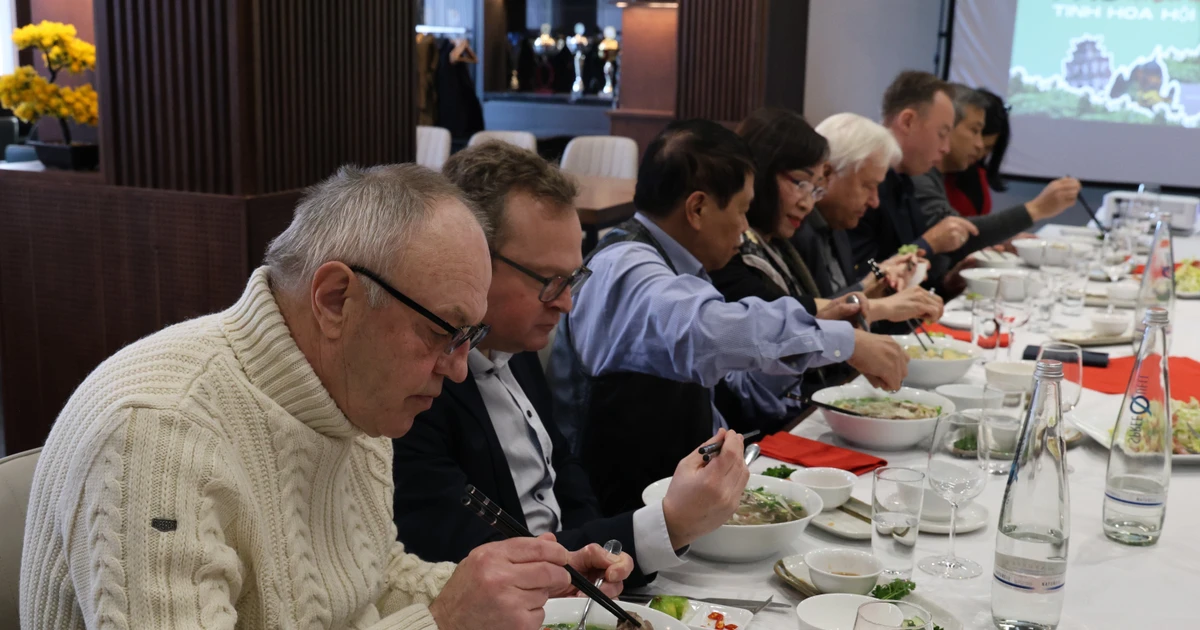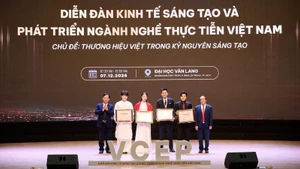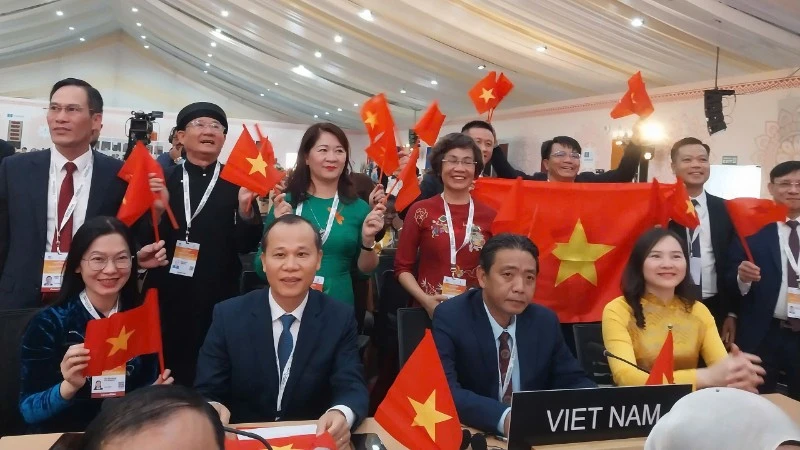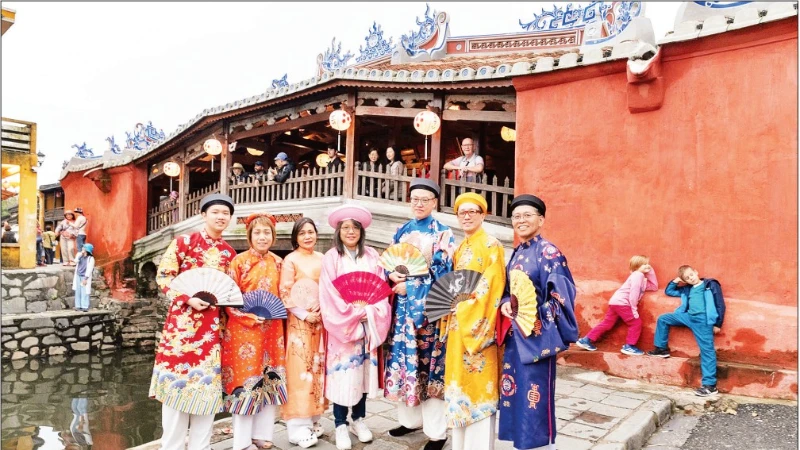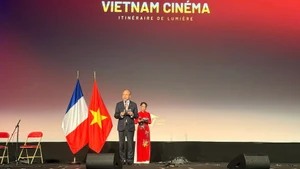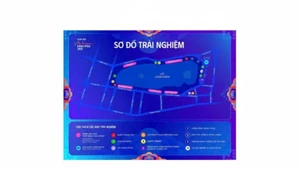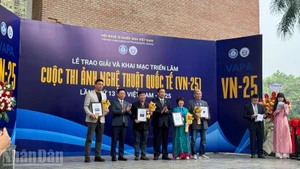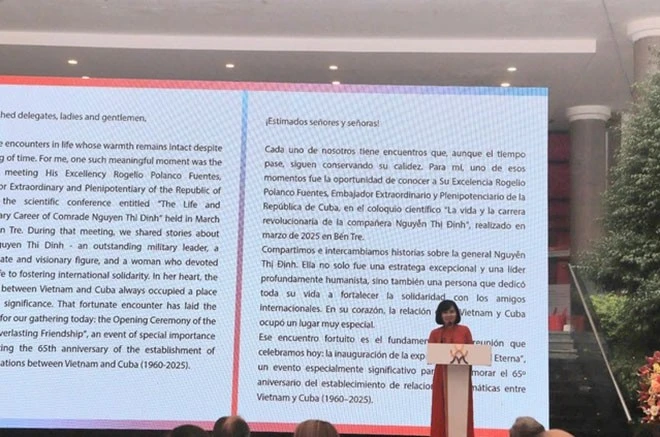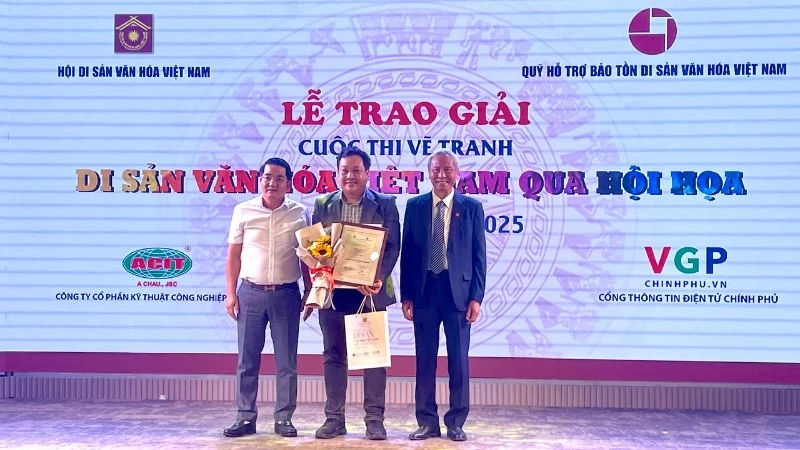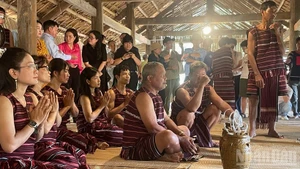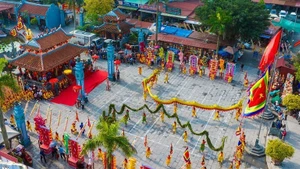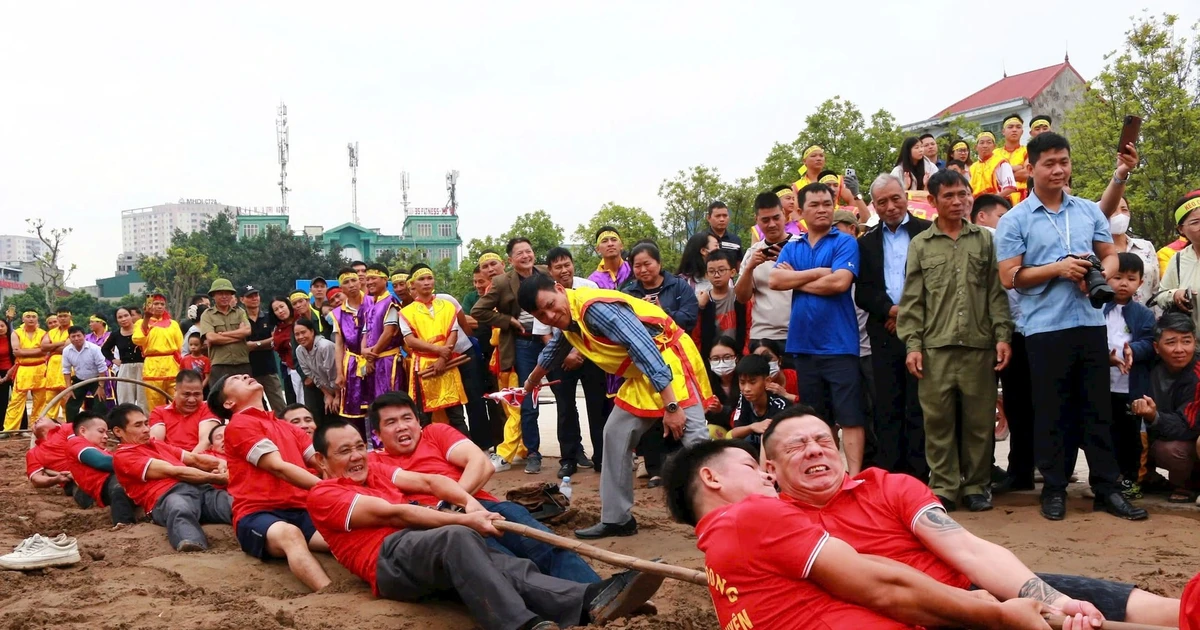Question: What motivated you to establish Canh Dieu, and why is it named “Canh Dieu”?
Dr. Nguyen Thuy Phuong: The founding of Canh Dieu was the idea of me and Nguyen Quynh Mai, my close friend from secondary school. We both work and live in France, and have children who were born and raised in France.
We are aware that our children's “mother tongue” is French, and they will be French citizens. However, we also attach great importance to keeping them practicing Vietnamese language and helping them understand Vietnamese culture.
At the beginning, Mai and I just wanted to open a space to play and learn Vietnamese for our children and their close friends. We chose the name “Canh Dieu” (Kite) because we hope that they will be kites which will fly high and fly away from us, but there is still a rope on the ground that holds them back, that is their Vietnamese origin, the Vietnamese language and culture.
Have you received any support from organisations or individuals in implementing Canh Dieu's activities?
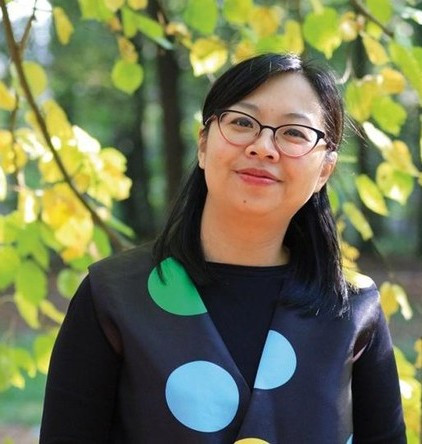 |
Dr. Nguyen Thuy Phuong: The first and most valuable support we received came from our friends, who were willing to take their children to classes at Canh Dieu from the very first days, and they have continued to support us to this day, 9 years since Canh Dieu was established in January 2014.
Over the past nine years, we also received free venues for hosting our classes.
In addition, parents have made great contributions to our operation. They have taken on many roles: Hoang Phuong, who works as an architect, teaches children drawing, while Quynh Mai and Phong Lan, two school teachers, provide lessons on Vietnamese language at Canh Dieu.
Our most special teacher is Hong Yen, who was our dance instructor and choreographer when we were fresh students in France. Now, Yen has joined Canh Dieu and continues her dance teaching career with our children.
While other clubs for Vietnamese children abroad often target to teach literacy of Vietnamese language, why did most of activities at Canh Dieu focus on martial arts, dance, drawing and playing classes?
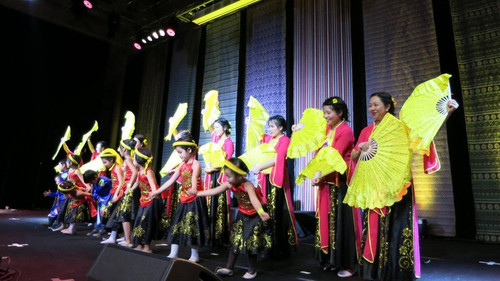 |
| A performance by members of Canh Dieu group. |
Dr. Nguyen Thuy Phuong: Quynh Mai and I agree that Vietnamese is a communication tool and Canh Dieu is a cultural space, so the teaching of Vietnamese at the group does not follow standards like at schools. The curriculum at Canh Dieu is developed by Quynh Mai in such a way that children can learn while playing. Martial arts, dance, drawing, and piano are vivid expressions of culture, allowing children need to move and interact, thus learning the language and culture in the most natural way.
Now, we have set a bigger target of connecting Canh Dieu with parents and children living in Vietnam. In summer 2022, we co-hosted two meaningful activities in Hanoi, including visits to the Temple of Literature and museums of history and fine arts, and an excursion to explore Quan Ho (love duet) folk singing in Bac Ninh Province.
We hope to accompany our children to visit more Vietnamese regions in the coming years.
In your opinion, what should parents do to help their children remember their roots and origin?
Dr. Nguyen Thuy Phuong: Parents should speak Vietnamese at home on a regular basis, keep in touch and make phone calls to their relatives in Vietnam such as grandparents, cousins and friends for their children to listen to and speak Vietnamese, because the emotional relationship (le lien affectif) is also one of factors to facilitate the learning and speaking of Vietnamese. It may come by chance that a cousin of the same age of your children will become the best Vietnamese “teacher” for them.
Thank you so much for your sharing!
Nguyen Thuy Phuong received a Doctorate in Education at the Paris Descartes University in 2013. She is currently working as a researcher in culture and the history of education, as well as a consultant and appraiser for projects in education and training in France and Vietnam.
In 2022, she won the Good Book Award for her two publications entitled ‘Education in Vietnam under the colonial period’ and ‘French schools in Vietnam from 1945 to 1975’.
